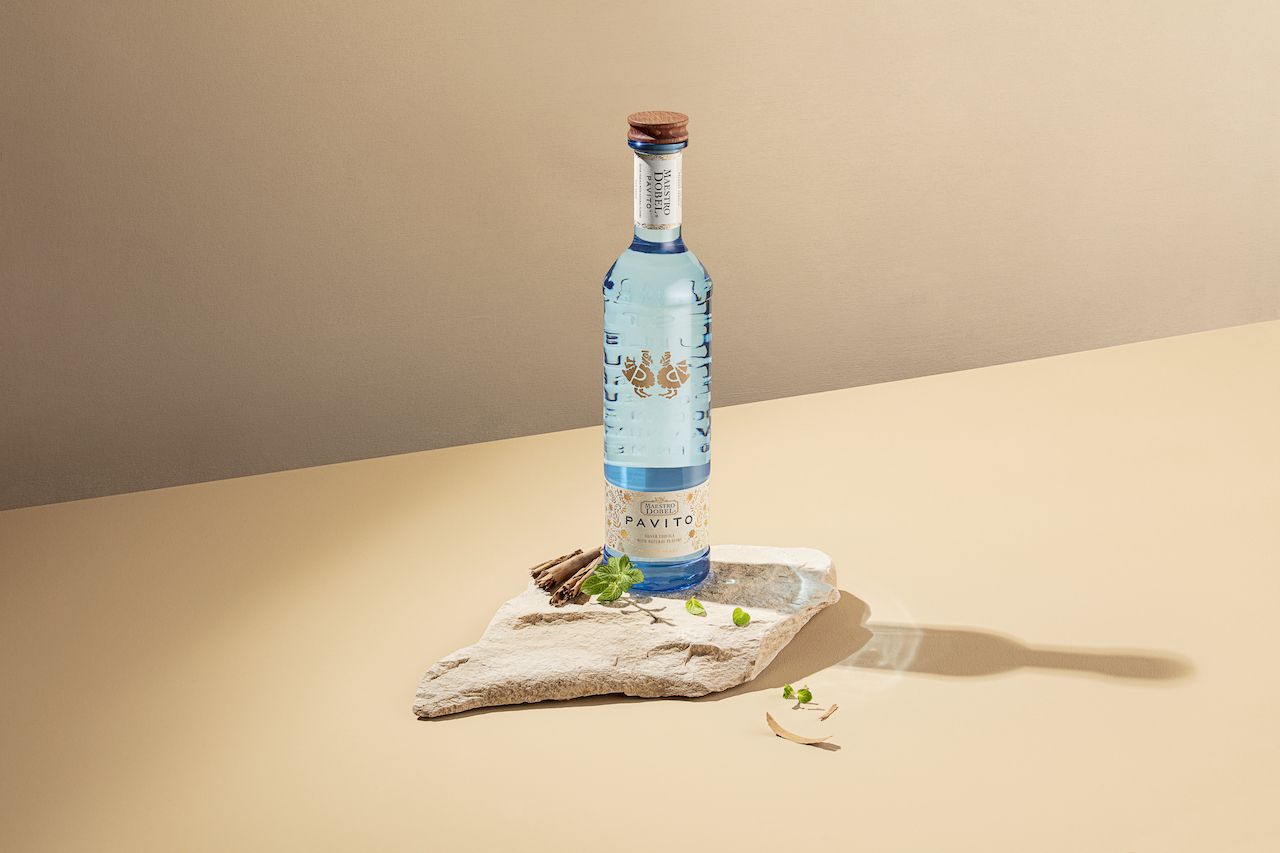There are many types of tequilas out there made by a wide range of producers. There is only one, however, that’s made with a turkey breast suspended in the still: Maestro Dobel’s Pavito.
Using turkey, chicken, or another meat during distillation is traditionally only done with mezcals. The resulting spirits are called pechuga, which translates to breast in Spanish. Maestro Dobel, which is known for its cristalino tequila, released the world’s first pechuga tequila in September 2021 with a suggested retail price of about $60. Even for people well versed in agave spirits, Pavito is unlike any tequila you’ve tried before.

